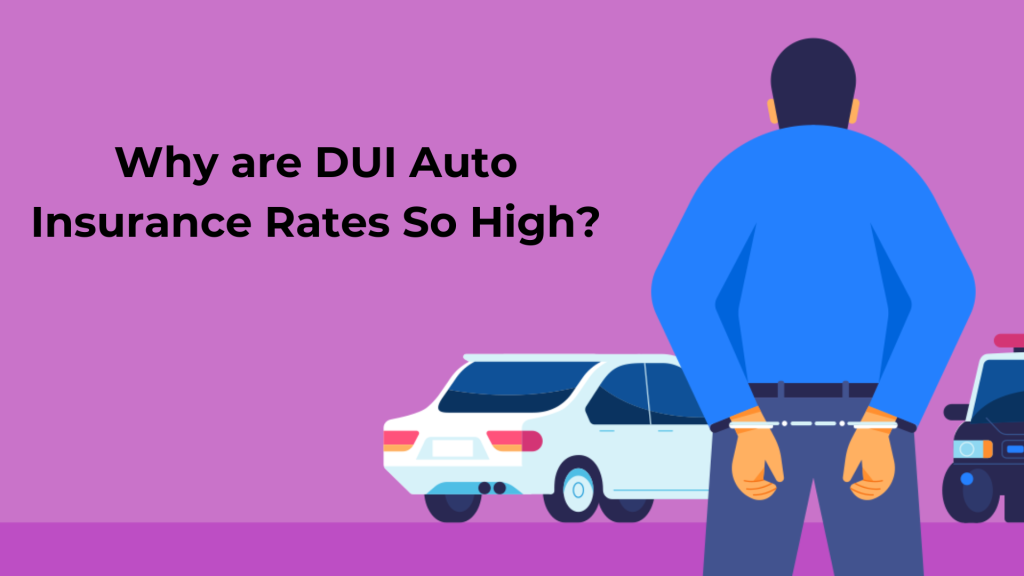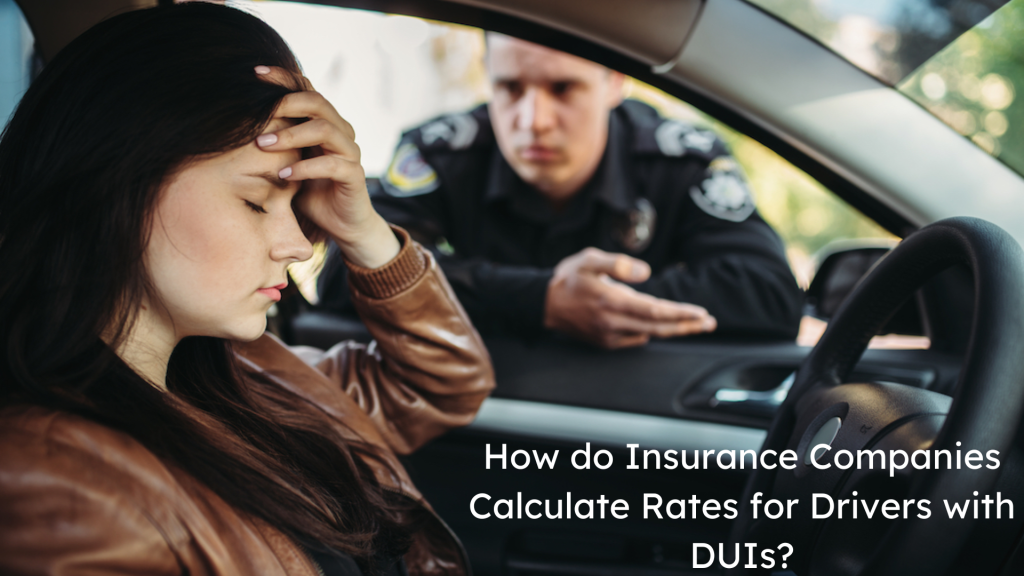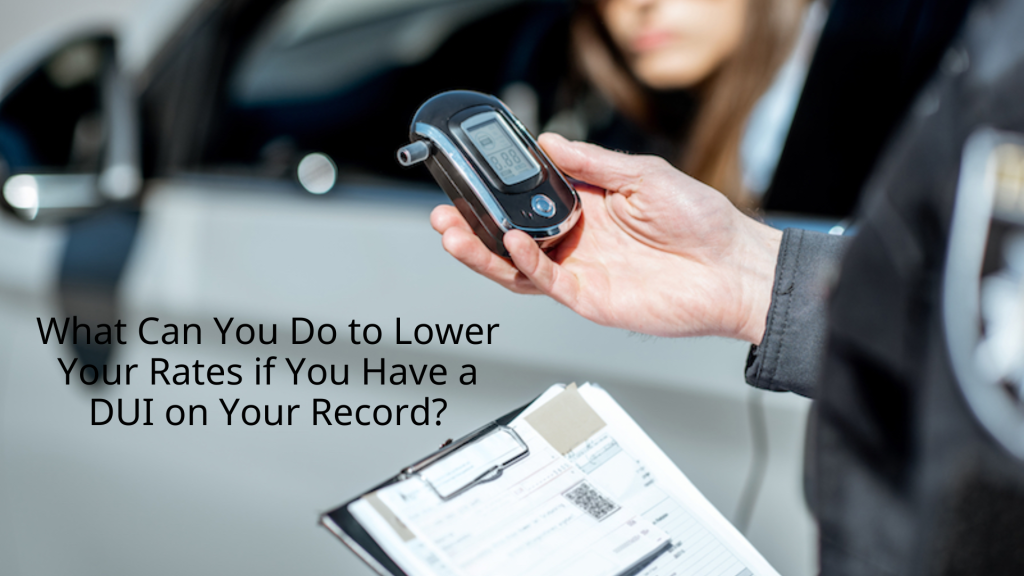Driving under the influence (DUI) is a serious crime with lasting repercussions, including higher car insurance rates. When compared to drivers who have not been convicted of DUI, DUI auto insurance rates are usually much higher. We‘ll look at why DUI auto insurance rates are so high, how insurers calculate rates for drivers with a DUI conviction, and what you can do to reduce your rates if you have a DUI on your record in this article.
Why are DUI Auto Insurance Rates So High?
Age, driving history, vehicle type, and geographic location are just a few of the variables that affect auto insurance prices. DUI convictions are regarded as a high-risk factor, which means that drunk driving offenders are more likely to be involved in accidents, which are more likely to cause severe injury or death. Insurance firms therefore increase their rates for drivers who have a DUI on their record.

The fact that insurers are required by law to offer coverage for all drivers, including those with DUI convictions, is another factor contributing to the high cost of DUI auto insurance rates. This means that when determining rates for all of their clients, insurers must take into account the higher risk of covering drivers who have had a DUI. In order to cover their expenses, insurers must raise the rates they charge due to the increased risk of accidents and claims for drivers who have consumed alcohol.
How do Insurance Companies Calculate Rates for Drivers with DUIs?

Insurance companies consider the driver’s age, gender, location, driving history, and the seriousness of the DUI crime when calculating DUI auto insurance rates offenders. Along with the kind of vehicle the driver possesses and the level of coverage they want, insurers also take these factors into account.
An essential factor that can have a big impact on auto insurance rates is the seriousness of the DUI offense. Drivers with more than one DUI conviction on their record are seen as being more dangerous than those with only one. Similar to this, drivers who have been pulled over and arrested for DUI but haven’t been in an accident are seen as having a greater risk than those who have been in both types of accidents while driving under the influence.
Insurance companies also take into account the driver’s overall driving history in addition to the seriousness of the DUI crime. Drivers with a past of collisions, speeding tickets, or other traffic infractions are viewed as being more dangerous than those who have perfect records. Drivers who have both a DUI conviction and a bad driving history can anticipate paying rates that are even higher than those who only have a DUI.
What Can You Do to Lower Your Rates if You Have a DUI on Your Record?

You can take actions to lower your auto insurance prices if you have a DUI on your record. One choice is to compare insurance rates from various insurers. The best rate can differ considerably between insurers, so it’s crucial to obtain quotes from several firms.
Taking a defensive driving training is an additional choice. Defensive driving courses are frequently discounted by insurers, and passing one can help lower insurance costs that come with a DUI charge. It may be necessary to finish a course in order to be able to legally drive because some states require drivers with a DUI conviction to do so in order to get their license back.
Additionally, drivers can take actions to clean up their driving record. Driving more carefully, abstaining from speeding and other moving violations, and not operating a vehicle while intoxicated are some examples of this. The effect of a conviction on DUI auto insurance rates can be lessened by improving one’s driving record, even though a DUI conviction will stay on a driver’s record for several years.
Last but not least, drivers may think about reducing their coverage limits to decrease their premiums. Not everyone should do this, but for drivers who are willing to take on more risk, it can be a useful method to cut costs.
It’s crucial to remember, though, that lowering coverage limits may expose drivers to greater financial risk in the event of a mishap. Before making this choice, drivers should thoroughly consider their financial situation and any associated risks.
Installing a telematics device or a dashboard camera is another choice for monitoring driving behavior. These tools can monitor a driver’s speed, braking, and acceleration patterns and give them feedback on how to travel more safely. As a result of their ability to lower the chance of accidents, many insurers provide discounts to drivers who install such devices.
Conclusion
In the end, refraining from drinking and driving is the best way to lower DUI auto insurance rates. Drivers can avoid not only the legal and financial repercussions of a DUI conviction, but also the increased risk of accidents and higher auto insurance rates that go along with it, by making responsible choices when it comes to drinking and driving.